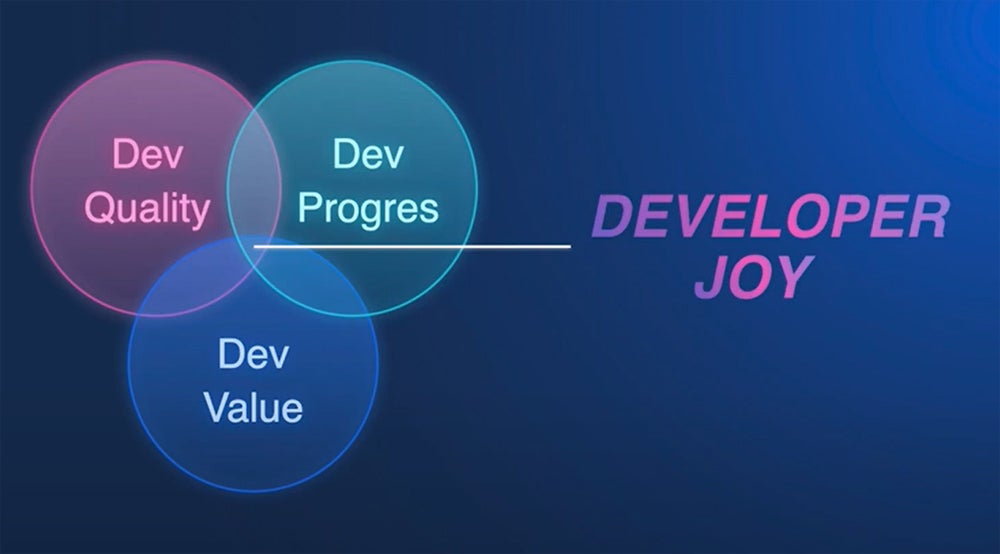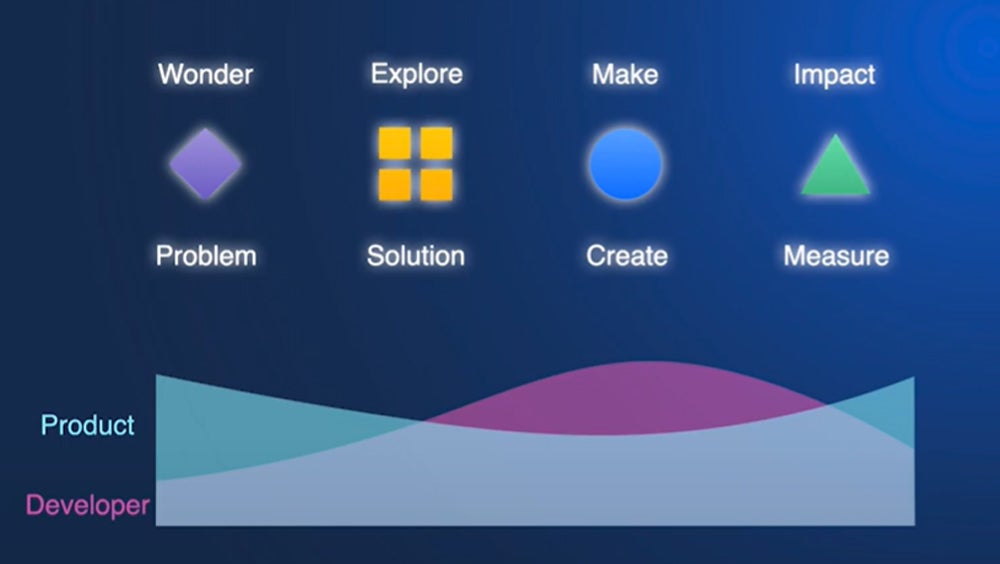Developer productivity is essential to Atlassian.
The Australian tech company has around 5,000 engineers worldwide and is home to a number of globally competitive software products for teams. Its success depends on developer engagement and delivering great products.
However, Atlassian believes that measuring developer productivity is not effective. Instead, the company prefers to align itself with a broader initiative to improve the developer experience called “developer joy.” The idea is simple: happy developers will ultimately be more productive.
Atlassian's problem with measuring developer productivity
Atlassian believes that productivity is difficult to measure and can be counterproductive.
In a blog post, Andrew Boyagi, DevOps evangelist at Atlassian, said he understands why companies want to measure developer productivity. With pressures on IT and business leaders to release digital products or features or manage digital transformations, these companies want to demonstrate the return on investment in people and technology, he explained.
But he said developer productivity is difficult to measure. Popular past and present metrics have included lines of code produced, tasks moved to the done column, estimated story points in a sprint, or DORA metrics such as software deployment frequency and cycle times.
Sven Peters, a DevOps advocate at Atlassian, said these metrics don't actually measure productivity. He noted that metrics like lines of code or deployment frequency can be manipulated, that story points are estimates, and that none of them measure positive outcomes for customers.
Productivity measures are also problematic considering that development roles now involve much more than coding and shipping new features. Peters said the cognitive load on developers now includes more time both running and developing the software.
Developer Experience: A New Way to Boost Productivity?
There is growing interest in how developer experience impacts productivity. DevEx focuses on creating the right environment for productive work, primarily through better tools and technologies, and moves away from DevOps’ emphasis on productivity tools and frameworks.
Deloitte named DevEx as one of the top technology trends for 2024. The firm said developers today are “in high demand but hampered” by productivity challenges such as configuration, tool integration and debugging, which impede activities and functions that add value to their business.
Three Elements of Developer Experience Excellence
A Deloitte analysis determined that there were three key elements of a great DevEx proposition:
- Platforms and tools: Fewer, higher-quality, standardized platforms and tools make developers’ jobs easier and more enjoyable. Harness’ State of the Developer Experience survey found that too many tools are used, increasing context switching and slowing down onboarding.
- Work forms and flow: Great DevEx needs “clear, continuous processes” so developers can perform tasks in a “flow” and avoid the friction created by disconnected systems or poor governance. This includes advanced team workflow management and DevSecOps.
- Talent Experience: Developers work best when they are part of a “fun, productive, and diverse” community and culture; participate in continuous learning; and have opportunities for career mobility and advancement through ongoing progression and development opportunities.
Atlassian's approach to productivity: maximizing “developer happiness”
Atlassian believes that developers who are happy and satisfied with their work are also more likely to be productive. This means that rather than wasting time and resources measuring productivity, it’s better to invest the effort into maximizing what they call “developer joy.”
Atlassian said developer joy has a number of inputs, but includes two main ingredients:
- Developer Experience: Atlassian sums up DevEx as how engineers feel about the tools, frameworks, and platforms they use to build software.
- Engineering culture: Atlassian defines engineering culture as “the way work gets done.” It includes elements such as organizational values, norms, and decision-making.
Atlassian's Peters offered more insight into what brings joy to Atlassian developers, including:
- Development quality: Developers enjoy their work more when they focus on high-quality code.
- Development progress: The ability to progress quickly without blockers satisfies developers.
- Development value: Joy and pride come from creating value and impacting clients' businesses.

What is “developer joy”?
Atlassian’s focus on building and measuring developer satisfaction has led to countless improvements across different product teams. As outlined in a presentation by Peters, these have included initiatives by teams working on Atlassian’s JIRA, Confluence, and Trello products.
TOUR
Their JIRA teams implemented a set of new guidelines for code reviews to make receiving feedback and making code improvements more enjoyable for developers. The guidelines include “assuming developer competence” and providing constructive, reasoned feedback.
JIRA’s development and product teams have also improved collaboration to avoid rework. All team members are now involved in every stage of the lifecycle to varying degrees, from the product “wonder” phase to the development and customer “impact” stages.

Confluence
Atlassian’s Confluence team built an internal tool to detect “bad” code tests, which delay the processing of pull requests. After identifying a bad test, the tool flags it for review via an automated Slack message, so developers aren’t distracted by time-consuming debugging tasks.
Another team reduced the time it takes to process pull requests and merge code into the main branch from three days to 1.2 days. They did this by sending automatic reminders to team members to review pull requests in the morning before starting their own work.
Trello
A team at Trello came up with a method to integrate QA into their workflow. They created a QA Kick-Off, where QA assistants brief developers on exploratory testing they will be performing. This allows developers to take primary responsibility for QA, with support from QA assistants.
How IT leaders can improve developer satisfaction on their teams
Ask developers for suggestions
Atlassian makes it clear that companies, including tech companies, that are serious about improving the experience of their developers should ask their developers themselves. Atlassian said that developers are more than willing to provide feedback on issues they have in order to improve their job satisfaction.
Atlassian offers a free developer experience survey that teams can set up and run digitally or in-person to measure their developer experience. The survey can help gather feedback on things like “sustainable delivery speed,” “wait time,” “execution independence,” and more.
Take time to improve joy
Atlassian decided to free up 10% of developers’ time to allow them to find ways to improve “developer satisfaction” in the business. This means that Atlassian developers spend approximately 55% of their time “changing the business” by developing products and features for their customers, 35% of their time “keeping things running” by performing maintenance work, and 10% of their time on developer satisfaction.
Treating each company and team uniquely
Peters advises DevOps leaders to look at each company and team as having a unique path to developer happiness. He said copying other companies or teams’ approaches may not work. Instead, work to improve happiness within a team’s unique tools and processes.
Adding context to productivity metrics
Organizations should not rely solely on the limited information provided by productivity metrics, such as deployment frequencies, but should instead look to add richer context to these measures and add new ones that influence productivity, such as developer team satisfaction.
Developer joy could be the future of tech talent
Finding a tech workplace that prioritizes joy over productivity measurement can seem like a dream for developers. In fact, for many developers around the world working at large tech companies, protecting wellbeing can be difficult enough, let alone fostering genuine joy at work.
However, Australian Atlassian may be onto something. As Boyagi suggests in his Atlassian blog post, companies that focus on DevEx could outperform their competitors, even attracting top talent. “I know what kind of company I would rather work for,” Boyagi wrote.












